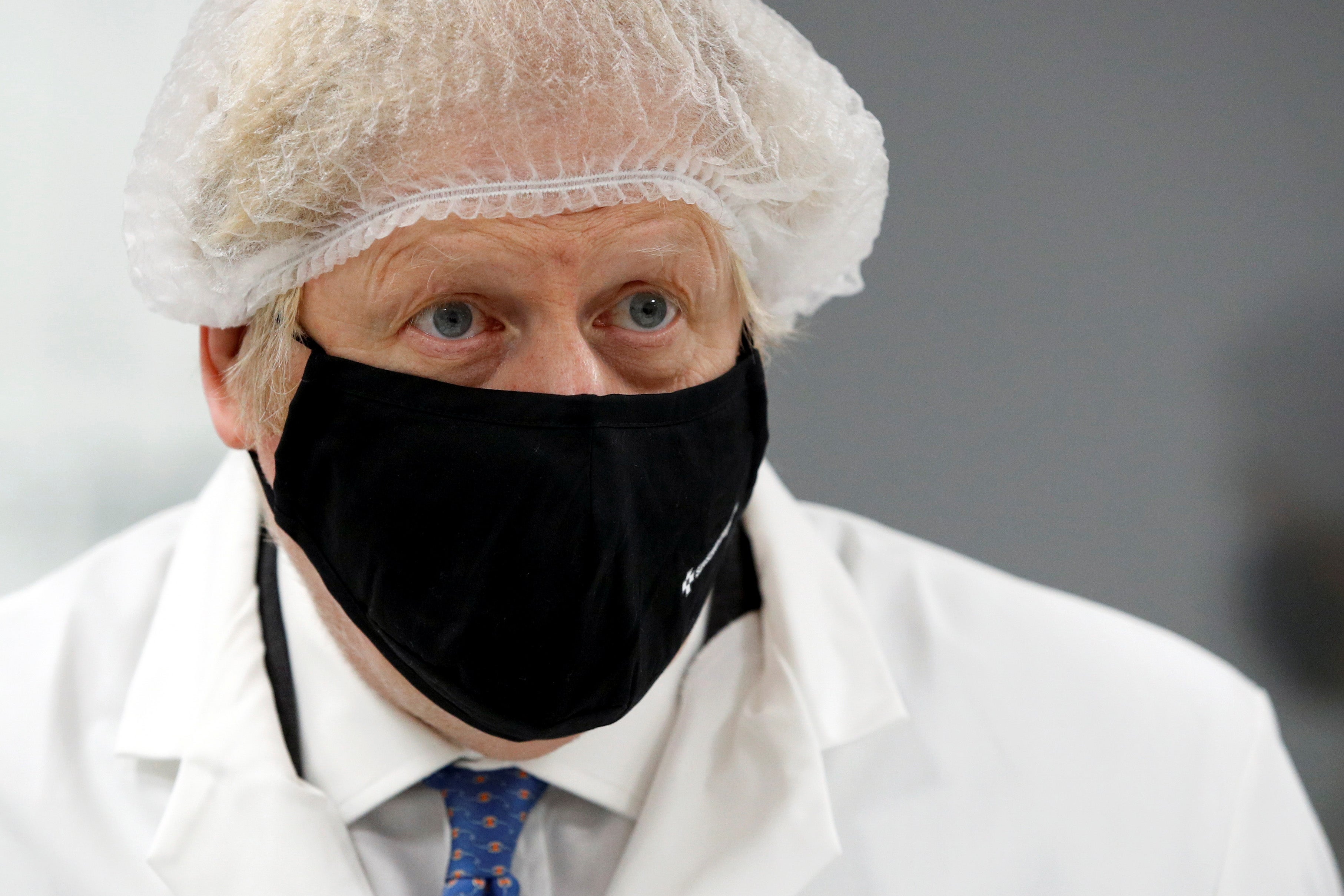Boris Johnson ‘very confident’ in Covid vaccine despite South Africa variant concerns
Prime minister says all vaccines are delivering 'a high degree of protection against serious illness and death'

Your support helps us to tell the story
From reproductive rights to climate change to Big Tech, The Independent is on the ground when the story is developing. Whether it's investigating the financials of Elon Musk's pro-Trump PAC or producing our latest documentary, 'The A Word', which shines a light on the American women fighting for reproductive rights, we know how important it is to parse out the facts from the messaging.
At such a critical moment in US history, we need reporters on the ground. Your donation allows us to keep sending journalists to speak to both sides of the story.
The Independent is trusted by Americans across the entire political spectrum. And unlike many other quality news outlets, we choose not to lock Americans out of our reporting and analysis with paywalls. We believe quality journalism should be available to everyone, paid for by those who can afford it.
Your support makes all the difference.Boris Johnson has said he is still "very confident" in all vaccines being rolled out across the UK despite concerns a new Covid variant could render one of them less effective.
Early scientific trials suggest the Oxford-AstraZeneca, which is being widely deployed in the UK, gives "minimal protection" against mild disease when up against a new variant from South Africa.
The prime minister however said all vaccines being used provide a "high degree of protection against serious illness and death".
During a visit to a coronavirus test manufacturing facility in Derby, he told reporters: "We're very confident in all the vaccines that we're using.
"And I think it's important for people to bear in mind that all of them, we think, are effective in delivering a high degree of protection against serious illness and death, which is the most important thing.
"We will be continuing to study the results, the effectiveness of the vaccine rollout, and that's going very, very fast indeed, and we will be looking at ways in which the population is starting to respond to the vaccines as we prepare to say what we're going to do in the week of the 22nd and what kind of roadmap we want to lay out."
The study suggesting the Oxford vaccine is less effective at preventing mild disease involved about 2,000 people who were an average an average of 31 years old, and is yet to have been peer-reviewed.
The vaccine's developers at Oxford have said it should still protect against severe disease, and that is is likely to have been modified by the autumn to protect more fully against the new variant.
The emergence of new Covid-19 variants is not unexpected and scientists had always expected vaccines would probably need to be updated to keep pace with mutations.
South Africa's government has paused the roll-out of the Oxford-AstraZeneca vaccine after a study showed it had "disappointing" result against the new variant, which is extremely common in the country and accounts for around 90 per cent of new cases there.
Around 147 cases of the South African variant have so far been positively identified in the UK, but there are likely to be more as these were the result of random checks on positive tests.
Speaking on Monday Mr Johnson declined to rule out a delay in the lifting of restrictions on account of the new variant. Asked about this possibility, he replied: "We think that all the vaccines that we're using, both the vaccines that we're currently using, are effective in stopping serious disease and death.
"We also think, particularly in the case of the Oxford/AstraZeneca vaccine, that there is good evidence that it is stopping transmission as well, I think 67 per cent reduction in transmission with the Oxford/AstraZeneca vaccine.
"They remain of massive benefit to our country and to the population as we go through the pandemic and I've no doubt that vaccines generally are going to offer a way out.
"With every day that goes by you can see that medicine is slowly getting the upper hand over the disease."

Join our commenting forum
Join thought-provoking conversations, follow other Independent readers and see their replies
Comments